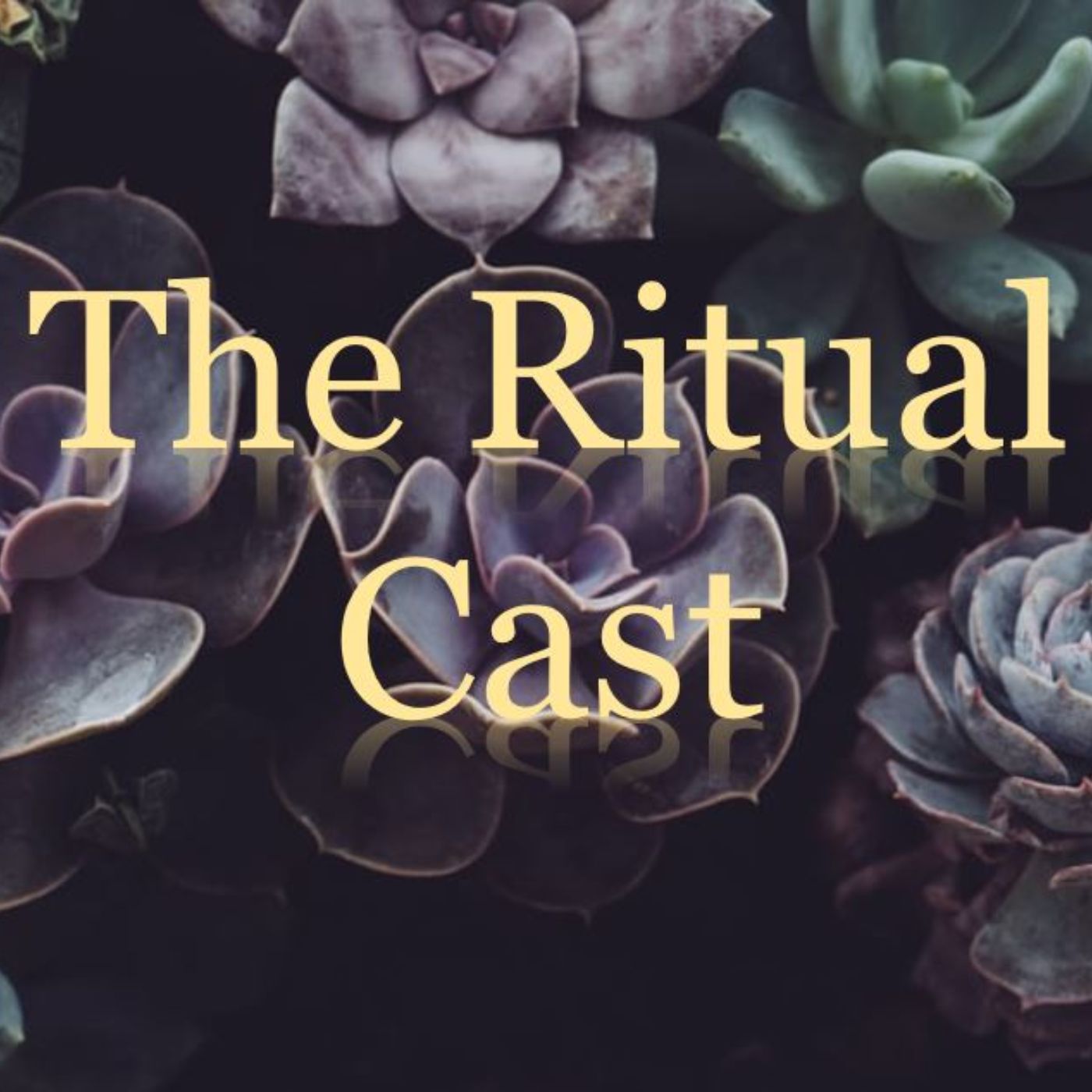So, you're diving into the world of Dungeons & Dragons and want to know everything about D&D ritual cast? Well, buckle up because we're about to take a deep dive into this magical mechanic that could change how you play the game. Ritual casting is one of those hidden gems in D&D that, when used correctly, can turn your character into a powerhouse of utility and strategy.
Now, before we get too deep into the weeds, let's talk about why ritual casting is such a big deal. Imagine being able to cast powerful spells without burning through your precious spell slots. Sounds like a dream, right? Well, that's exactly what ritual casting offers. It's like having a magic wand that doesn't run out of juice, and trust me, your party will love you for it.
But wait, there's more. Ritual casting isn't just about conserving resources; it's about expanding your character's capabilities. Whether you're a wizard, a cleric, or even a warlock, mastering this mechanic can make your character feel like a true master of the arcane arts. So, let's break it all down and figure out how you can make the most out of D&D ritual cast.
First things first, let's lay out the roadmap for this guide. We're going to cover everything you need to know about ritual casting, from the basics to advanced strategies. Along the way, we'll sprinkle in some tips and tricks to help you dominate the game table. Ready? Let's go!
What is D&D Ritual Cast?
Alright, let's start with the basics. In D&D, ritual casting is a special type of spellcasting that allows characters to cast certain spells as rituals. What does that mean? Well, it means you can cast these spells without using up your precious spell slots. However, there's a catch: casting a spell as a ritual takes longer than casting it normally. Instead of taking an action, it takes 10 minutes. But hey, if you're not in a rush, it's totally worth it.
Here's the kicker: not every spell can be cast as a ritual. Only spells that have the ritual tag can be cast this way. And guess what? Not every class can perform ritual casting. But don't worry, we'll cover all of that in just a bit.
Now, why is this so important? Because ritual casting gives you access to powerful utility spells that can turn the tide of an adventure. Need to teleport across the kingdom? No problem. Need to identify a mysterious object? Done. Ritual casting is like having a toolbox full of magical solutions to whatever problem your party might face.
Classes That Can Perform Ritual Casting
Not every class in D&D gets to enjoy the benefits of ritual casting. But don't worry, there are still plenty of options for players who want to harness this magical mechanic. Let's break it down:
- Wizards: Wizards are the kings of ritual casting. They automatically gain the ability to cast any wizard spell with the ritual tag as a ritual, no questions asked.
- Clerics: Clerics can also perform ritual casting, but it depends on their domain. For example, clerics with the Knowledge domain can cast certain spells as rituals.
- Druids: Druids have access to ritual casting as well, but it's limited to spells from the druid spell list that have the ritual tag.
- Warlocks: Warlocks can perform ritual casting, but only if they choose the Pact of the Tome feature and select the Book of Ancient Secrets invocation.
As you can see, each class has its own unique way of accessing ritual casting. So, if you're building a character specifically for ritual casting, make sure to choose a class that fits your playstyle.
Spells That Can Be Cast as Rituals
Now that we know which classes can perform ritual casting, let's talk about the spells that can be cast as rituals. There are plenty of spells with the ritual tag, and they cover a wide range of effects. Here are some of the most popular ritual spells:
- Comprehend Languages: This spell allows you to understand spoken and written languages for an hour.
- Find Familiar: Summon a familiar to assist you in your adventures.
- Identify: Determine the properties of a magical item.
- Locate Object: Find a specific object within a certain range.
- Leomund's Tiny Hut: Create a magical shelter that protects you and your party from the elements.
These are just a few examples of the many ritual spells available in D&D. Each one offers its own unique benefits, so it's worth exploring the full list to find the spells that best suit your character's needs.
Why Ritual Casting is Essential for Your Party
Let's face it, every party needs a utility specialist. Someone who can handle the non-combat challenges that come up during an adventure. That's where ritual casting comes in. By having a character in your party who can perform ritual casting, you're ensuring that you're always prepared for whatever the dungeon master throws your way.
For example, imagine your party stumbles upon a mysterious artifact that could be the key to saving the kingdom. But there's one problem: you have no idea what it does. Enter the ritual caster. With a quick casting of Identify, you can figure out the artifact's properties and unlock its full potential. See how valuable that is?
But it's not just about solving puzzles. Ritual casting can also help your party in combat situations. For instance, casting Leomund's Tiny Hut can give your party a much-needed break during a long dungeon crawl. Or, if you're low on resources, casting Find Familiar can give you an extra set of eyes to scout ahead.
How to Master Ritual Casting
Alright, so you've decided to make ritual casting a key part of your character's repertoire. Now, let's talk about how to master this mechanic and make the most out of it. Here are a few tips to help you get started:
- Choose the Right Spells: Not all ritual spells are created equal. Make sure to choose spells that fit your character's playstyle and the needs of your party.
- Invest in the Right Features: If you're playing a warlock, consider taking the Book of Ancient Secrets invocation. If you're playing a cleric, choose a domain that gives you access to ritual casting.
- Plan Ahead: Ritual casting takes time, so it's important to plan ahead. If you know you're going to need a certain spell, cast it before you enter a dungeon or start a combat encounter.
Remember, mastery comes with practice. The more you use ritual casting, the better you'll get at it. So, don't be afraid to experiment and try out different spells to see what works best for your character.
Common Mistakes to Avoid
As with any mechanic in D&D, there are a few common mistakes that players make when it comes to ritual casting. Here are a few to watch out for:
- Ignoring the Time Requirement: Remember, casting a spell as a ritual takes 10 minutes. If you're in a combat situation, this might not be the best option.
- Overlooking Utility Spells: It's easy to get caught up in the flashy combat spells, but don't forget about the utility spells. They can be just as important, if not more so.
- Not Preparing in Advance: Ritual casting is all about preparation. If you wait until the last minute to cast a spell, you might find yourself in a tight spot.
By avoiding these mistakes, you'll be well on your way to becoming a master ritual caster.
Advanced Strategies for Ritual Casting
Now that you've got the basics down, let's talk about some advanced strategies for ritual casting. These tips will help you take your game to the next level:
- Combine Rituals with Other Abilities: Some classes have abilities that can enhance ritual casting. For example, a wizard with the Arcane Recovery feature can regain spell slots after a short rest, allowing them to cast more spells in a day.
- Work with Your Party: Ritual casting isn't just about you. Work with your party to figure out which spells will be most useful for everyone. This will help you create a more cohesive and effective team.
- Explore Multiclassing Options: If you're feeling adventurous, consider multiclassing into a class that has access to ritual casting. This can give you access to even more spells and abilities.
These strategies will help you make the most out of ritual casting and become a true master of the arcane arts.
Real-World Examples of Ritual Casting in Action
Let's look at a few real-world examples of how ritual casting can be used in a D&D campaign:
- Identifying a Magical Item: Your party finds a mysterious sword in a dungeon. By casting Identify, you discover that it's a +1 longsword with the ability to detect undead.
- Creating a Safe Haven: During a long dungeon crawl, your party needs a place to rest. By casting Leomund's Tiny Hut, you create a magical shelter that protects you from the elements and hostile creatures.
- Summoning a Familiar: Your party is exploring a dark forest and needs extra eyes to scout ahead. By casting Find Familiar, you summon a tiny owl that can fly ahead and report back.
As you can see, ritual casting can be used in a variety of situations to help your party succeed.
Conclusion
Well, there you have it, folks. D&D ritual cast is one of the most powerful mechanics in the game, and mastering it can make your character indispensable to your party. By understanding the basics, choosing the right spells, and avoiding common mistakes, you'll be well on your way to becoming a master ritual caster.
So, what are you waiting for? Grab your spellbook, roll up your sleeves, and start casting those rituals. And don't forget to share this guide with your friends so they can join in on the fun. Remember, the more you know, the better you'll play. Happy adventuring!
Table of Contents


